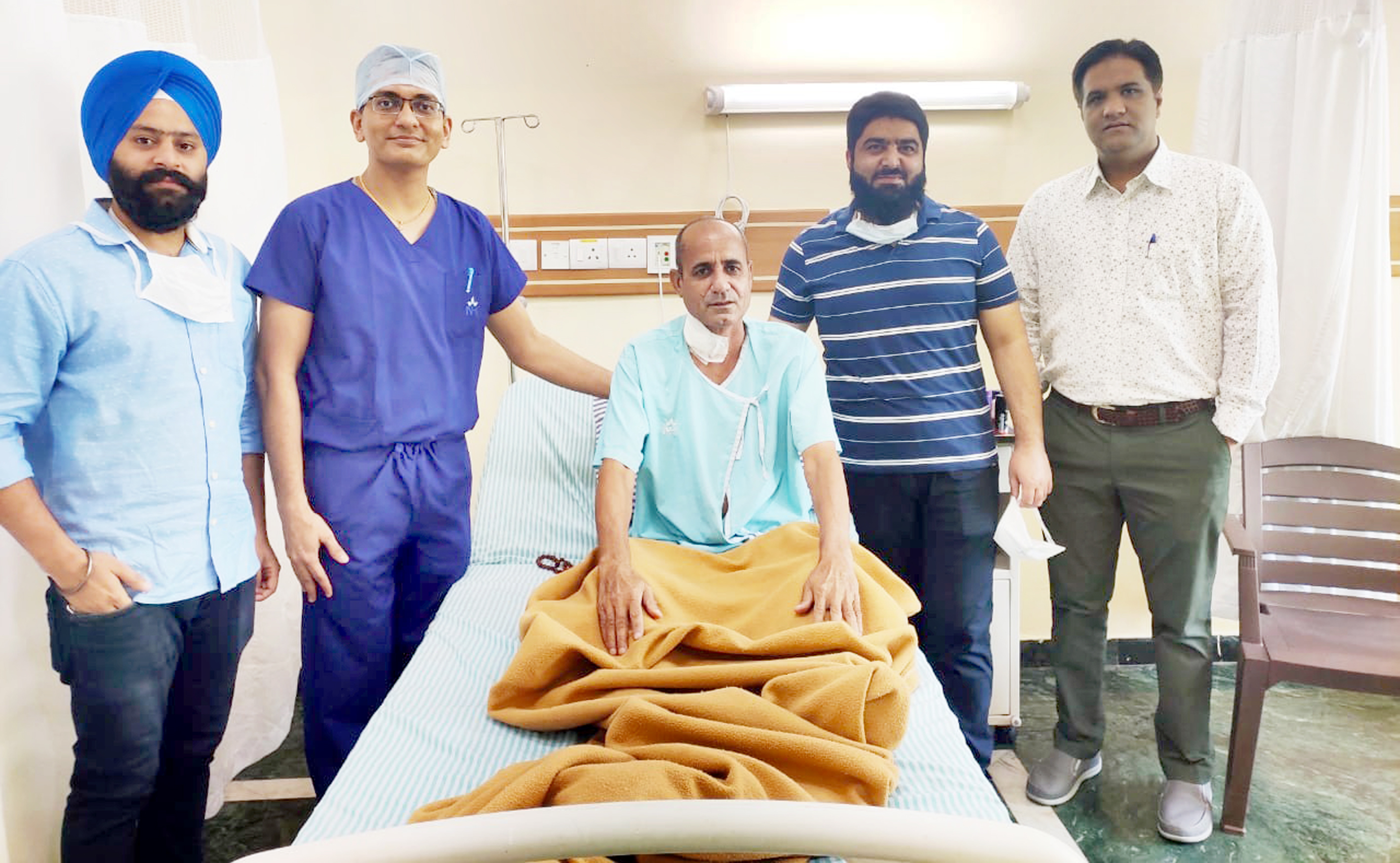
Excelsior Correspondent
JAMMU, July 29: Shri Mata Vaishnodevi Narayana (SMVDN) Super Speciality Hospital has once again proved their expertise in critical care by treating a 60 year old patient suffering from a fatal condition called acute mesenteric ischemia.
Acute mesenteric ischemia is a life threatening disorder wherein, blood clots starts developing in the arteries that are present in the abdomen and thereby disrupts the blood supply to small and large intestine. The patient was saved by performing a complex abdominal vascular surgery called Superior Mesenteric Artery Thrombo-embolectomy.
Hailing from RS Pura, Dharampal Singh was brought to SMVDN Narayana Super Speciality Hospital with severe abdominal pain. On detailed evaluation by the doctors it was found that he was suffering from acute mesenteric ischemia. Any delay in treatment would have led to ischemia, gangrene and even death. Though a high risk case, the doctors under the aegis of Dr Sumit J Modi, Consultant Cardio Vascular and Thoracic Surgeon took up the case.
After thorough evaluation the doctor and his team suggested Superior Mesenteric Artery Thrombo-embolectomy. In this procedure, the patient’s abdomen is opened, his intestinal artery is dissected and the clot is removed. The opened arteries are repaired with vein patch from leg. After the procedure, the patient is now leading a healthy life.
Elaborating about the condition, Dr Sumit J Modi said, “Acute mesenteric ischemia is a life-threatening emergency. Even though the overall incidence is low, estimated to be around 0.09-0.2% of all acute surgical admissions, owing to the delay in diagnosis the mortality rate is as high as 50-80%.”
“Patients suffering from acute mesenteric ischemia, often experience postprandial pain, weight loss, or “food fear”. In fact, with 95% of patients experiencing abdominal pain, it is the most common symptom. Nausea (44%), vomiting (35%), diarrhea (35%), and bleeding from rectum (16%) are the other symptoms. It is very important and advisable to understand the early signs and seek medical help,” added Dr Modi.

